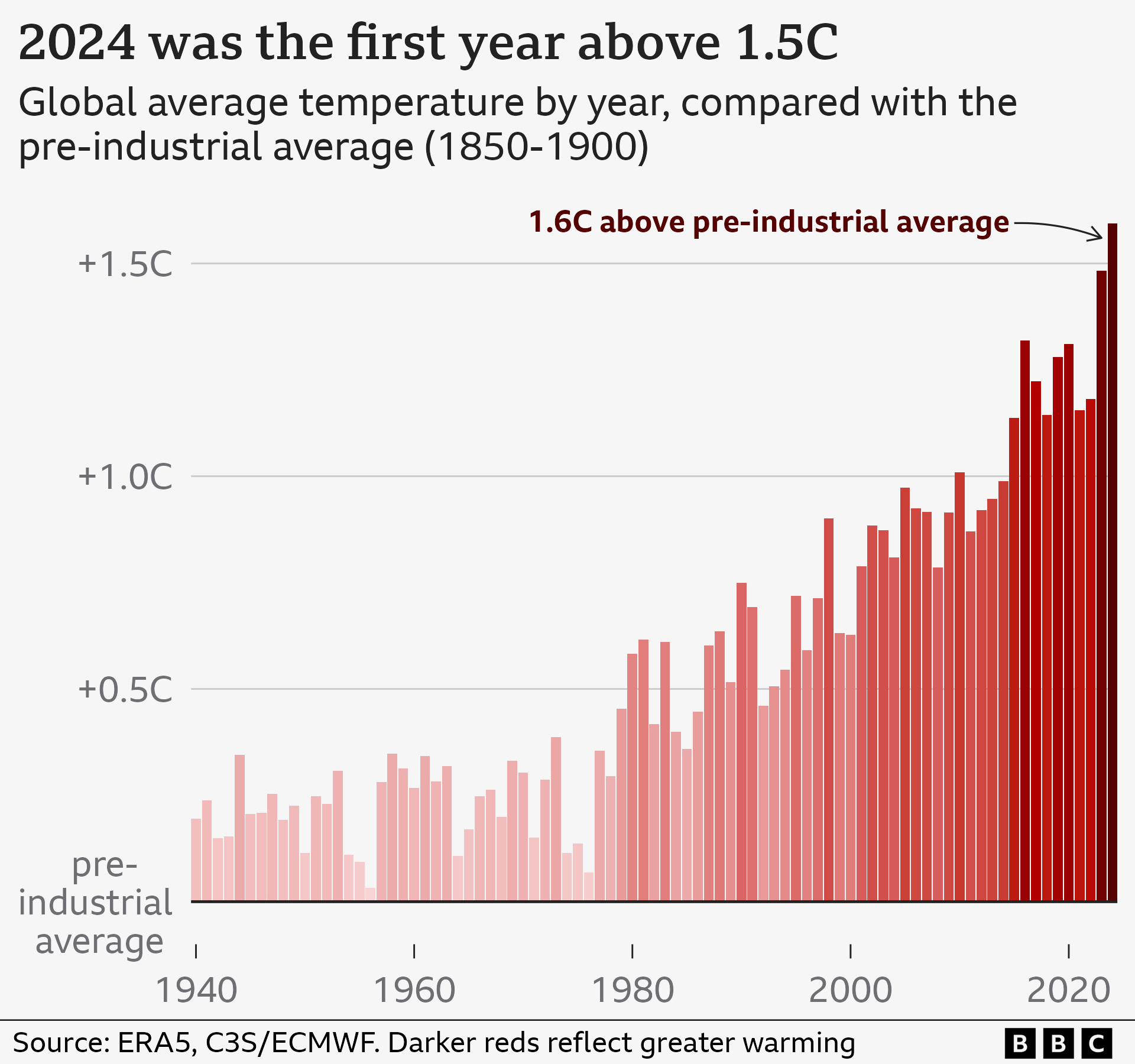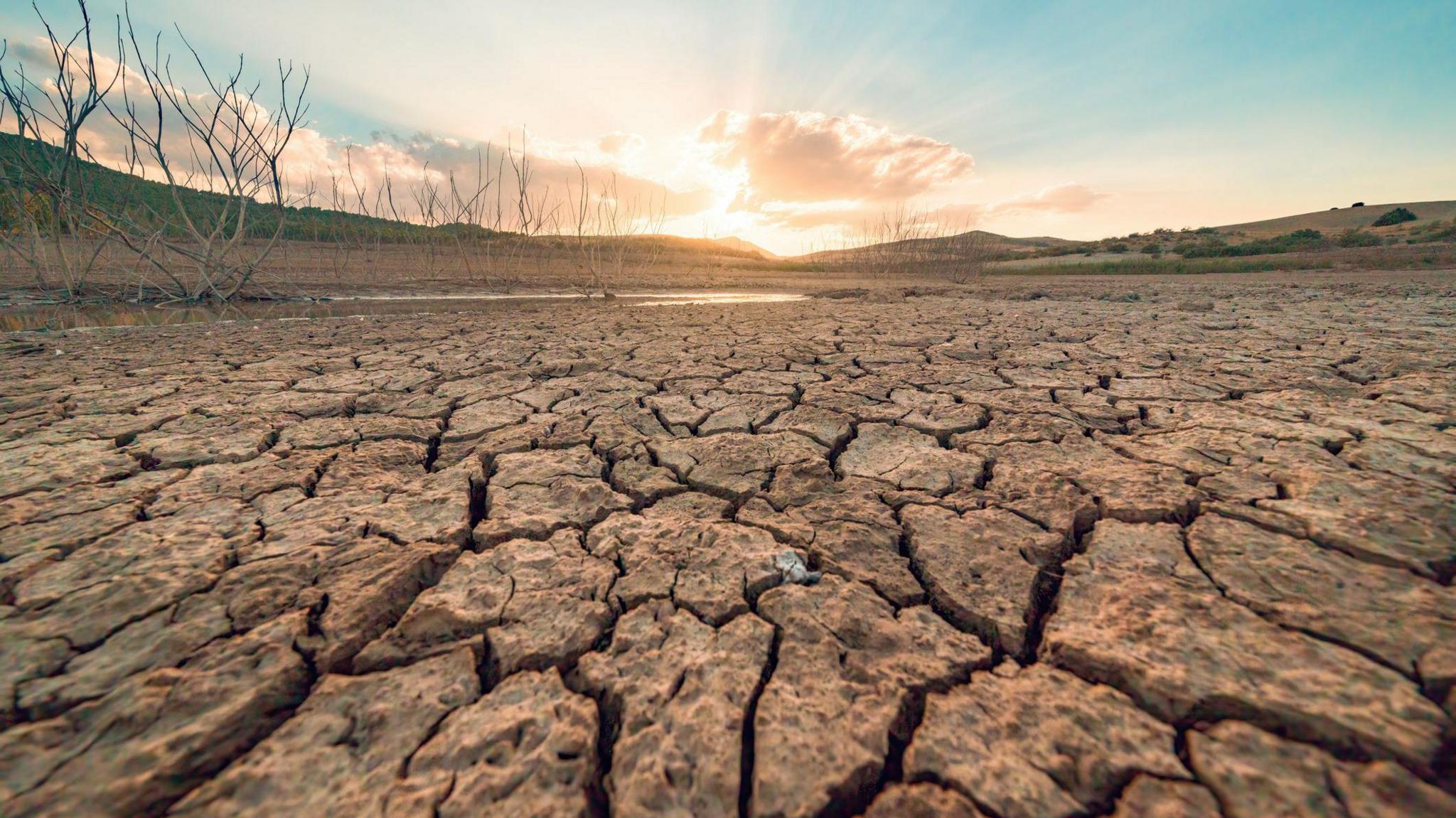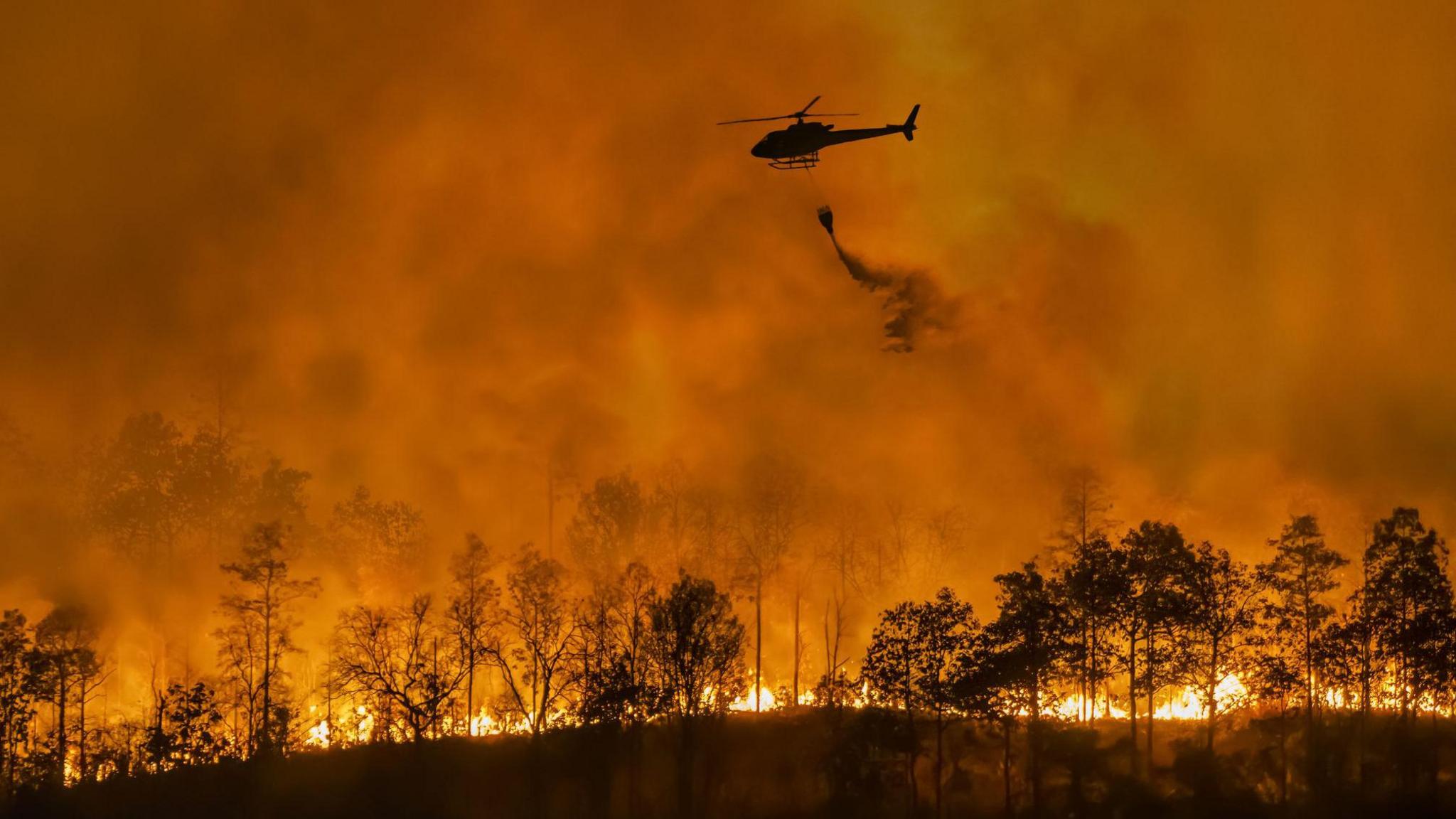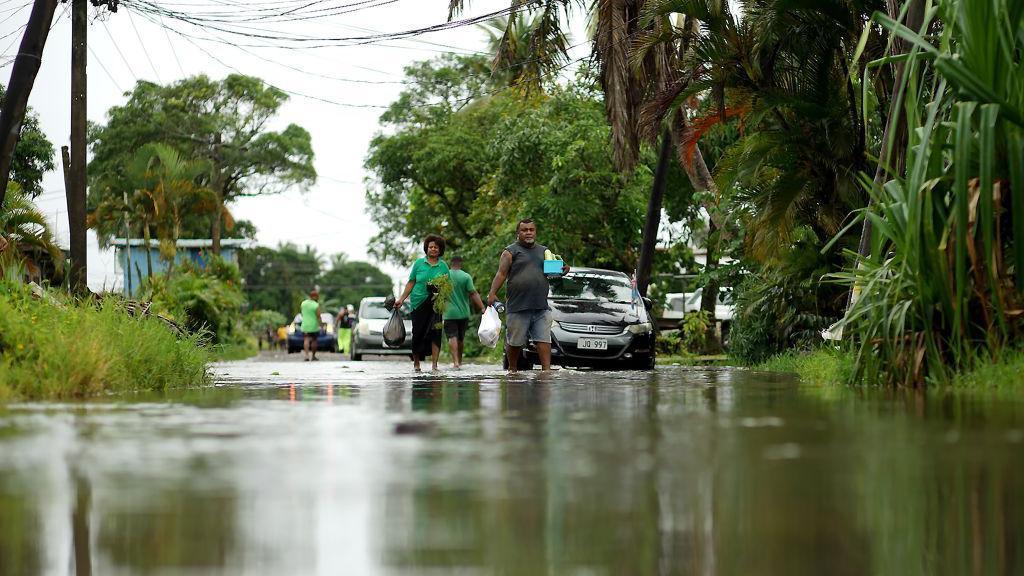Earth has hottest year on record in 2024

- Published
2024 was the world's hottest year on record, experts say, as Earth was recorded warming by more than 1.5 degrees Celsius (C) for the first time.
That's despite world leaders promising to take action to try to avoid it.
It's according to research by scientists from the European Copernicus climate service, the Met Office, Nasa and other climate experts around the world.
Their work showed that average global temperatures for 2024 were around 1.6C higher than pre-industrial times - that's the time around 300 years ago, before humans started burning large amounts of fossil fuels, like oil and coal.
The aim of a warming limit of 1.5C was set at a climate conference back in 2015, called the Paris agreement, where world leaders from all over the world signed a pact to help stop the global temperature from increasing.
More like this
Climate change: What is it?
- Published20 January 2020
2023 hottest year on record, say scientists
- Published10 January 2024
Calls to 'super-charge' efforts to stop climate change
- Published20 March 2023

"Once again, the temperature record has been shattered - 2024 was the hottest year since record keeping began in 1880," said Nasa Administrator Bill Nelson.
It breaks the record set in 2023 by just over 0.1C, and means the last 10 years are now the ten warmest years on record.
Why is the 1.5C limit important?

Scientists argue that if the planet's temperature rises consistently by more than 1.5C, it could cause big problems for the planet.
A UN report from 2018 said the risks from climate change, such as intense heatwaves, rising sea-levels and loss of wildlife, would be much higher at 2C of warming than at 1.5C.
Even small movements in warming levels can bring more frequent and intense extreme weather, such as heatwaves and heavy rainfall.

But scientists also say the 1.5C level is not the only important thing.
"It's not like 1.49C is fine, and 1.51C is the apocalypse - every tenth of a degree matters and climate impacts get progressively worse the more warming we have," said Zeke Hausfather, a climate scientist at Berkeley Earth.
Dr Friederike Otto, who helped write the latest report says: "If we aim for 1.5C and achieve 1.6C, that is still much much better than saying, it's too late, and we are doomed and I'm not even trying."

Scientists also argue that humans still have the power to do more to control climate change, and that action by leaders and businesses is sill important.
"Even if 1.5 degrees is out the window, we still can probably limit warming to 1.6C, 1.7C or 1.8C this century," says Dr Hausfather.
"That's going to be far, far better than if we keep burning coal, oil and gas unabated and end up at 3C or 4C - it still really matters."
